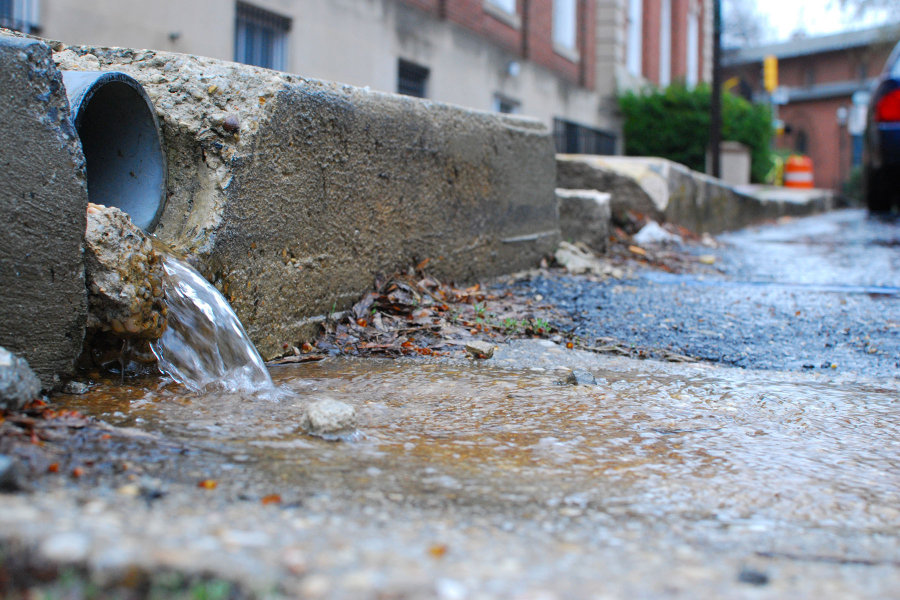Letter from Leadership: Communities own past, prepare for future with stormwater utilities
Three Maryland towns combat the flooding and pollution facing their communities.

Nobody enjoys paying taxes or fees to the government. Whether or not you believe in “big government,” April 15th is no one’s favorite day of the year. But it’s important to remember that when we put money into local governments, we benefit from what good government offers. It’s easy to feel more positive about paying a fee when you know the money is being put to good use.
Three Maryland towns – Berlin, Oxford and Salisbury – recently decided to be examples of what I’d call responsible, Bay-friendly government when each of them voluntarily established its own stormwater utility. A stormwater utility operates in a similar way to an electric or water utility; it generates funds by charging a fee for service and uses those funds to improve the community’s quality of life by updating sewer systems, addressing flooding issues, reducing polluted runoff in local waters and better planning for the impacts of climate change. These programs were not requirements from the state or federal government; rather, residents felt it was necessary and appropriate to create a funding source to deal with the problems facing their communities.
In January 2013, the town of Berlin passed legislation to reduce flooding and clean up local rivers and streams. The fees established by this legislation will generate almost $600,000 annually to improve stormwater management, repair existing infrastructure and reduce chronic flooding. Over time, this stormwater utility will save the town money by avoiding damage to the city’s infrastructure and reducing the impacts of flooding on local businesses.
In 2012, the town of Oxford – working with the Eastern Shore Land Conservancy (ESLC), the Mid-Atlantic Environmental Finance Center and other partners – conducted an assessment of the town’s existing stormwater conditions. The recommendations of the assessment included the creation of a stormwater utility. Over the years, residents of Oxford have seen more areas flood on a more frequent basis and felt they had to find a solution. Town Manager Cheryl Lewis believes the Federal Emergency Management Agency (FEMA) will give flood insurance discounts to communities that take action to address stormwater issues themselves.
Salisbury recently became the latest Maryland town to voluntarily establish a stormwater utility through a unanimous decision by its city council. But these programs aren’t exclusive to Maryland – across the Chesapeake Bay region, local governments have taken charge to help protect their local waters. From Washington, D.C., to Lancaster, Pennsylvania, to Lynchburg, Virginia, cities large and small have not only established stormwater utilities but have also implemented stormwater credit programs to reward homeowners who install rain gardens, pervious pavement, green roofs and other methods of reducing the amount of runoff from their property.
In many of these cases, these programs are dealing not simply with nuisance flooding, but with chronic flooding that disrupts business and results in lost income. While some opponents of the stormwater utility approach refer to the fees as a “rain tax,” supporters see it as a way to protect local waterways and drinking water sources from polluted stormwater runoff.
It’s encouraging to see groups rise above the rhetoric, recognize there is a problem, and take positive action and responsibility to address it, instead of waiting to be forced to make a change. These issues affect their community, their homes and their businesses, and they are taking charge.
Note: The opinions expressed above are those of the author and do not necessarily reflect U.S. EPA policy endorsement or action.

Comments
There are no comments.
Thank you!
Your comment has been received. Before it can be published, the comment will be reviewed by our team to ensure it adheres with our rules of engagement.
Back to recent stories